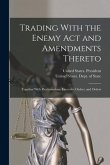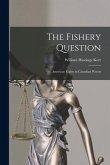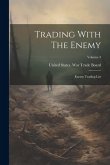Since its founding, the United States has defined itself as the supreme protector of freedom throughout the world, pointing to its Constitution as the model of law to ensure democracy at home and to protect human rights internationally. Although the United States has consistently emphasized the importance of the international legal system, it has simultaneously distanced itself from many established principles of international law and the institutions that implement them. In fact, the American government has attempted to unilaterally reshape certain doctrines of international law while disregarding others, such as provisions of the Geneva Conventions and the prohibition on torture. America's selective self-exemption, Natsu Taylor Saito argues, undermines not only specific legal institutions and norms, but leads to a decreased effectiveness of the global rule of law. Meeting the Enemy is a pointed look at why the United States' frequent-if selective-disregard of international law and institutions is met with such high levels of approval, or at least complacency, by the American public.
Hinweis: Dieser Artikel kann nur an eine deutsche Lieferadresse ausgeliefert werden.
Hinweis: Dieser Artikel kann nur an eine deutsche Lieferadresse ausgeliefert werden.








